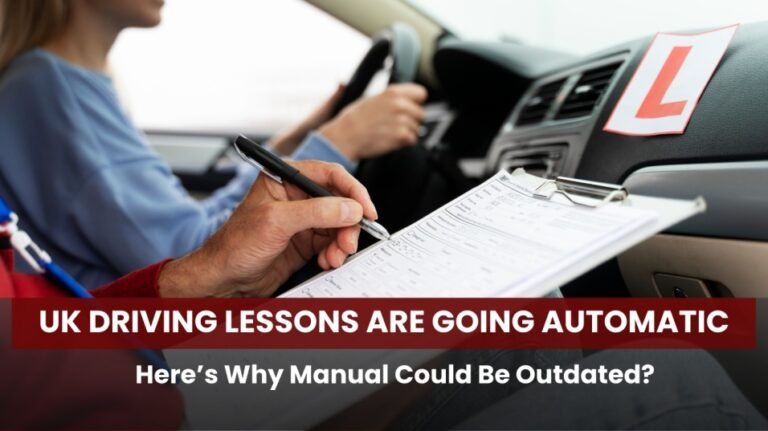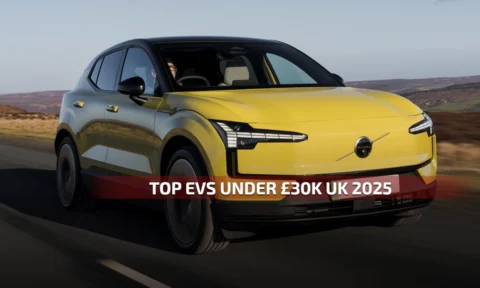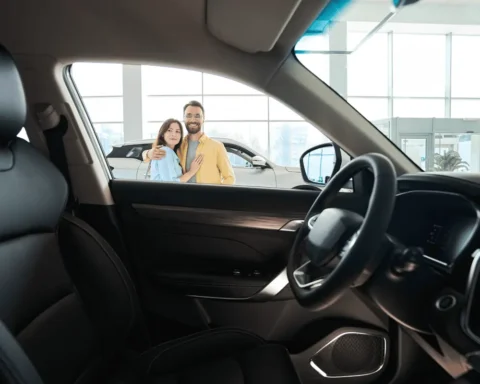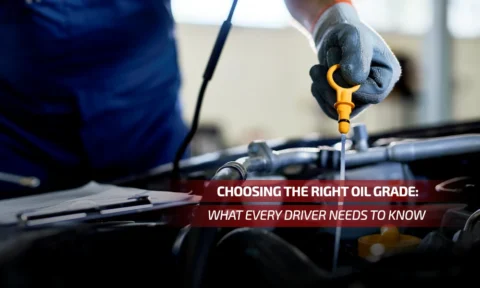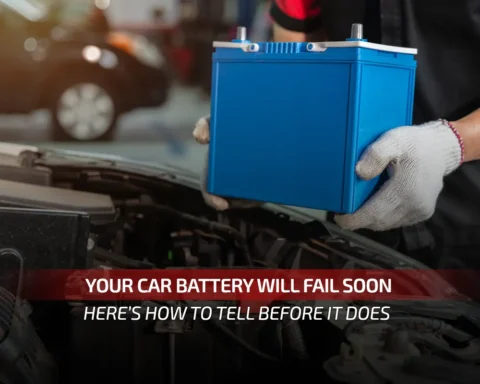Learning to drive is a rite of passage that is followed in many countries across the world. And it’s no different in the UK. For decades, the first decision many learners made wasn’t about the car they’d buy but the type of license they wanted: manual or automatic. Traditionally, most people chose manual because it gave them the freedom to drive any kind of car. But times are changing fast.
In fact, more driving schools across the UK are reporting that automatic lessons are trending more than ever before, and for good reason. With the government’s push toward electric vehicles (EVs), which are all automatic by design, a decline in manual driving tests in the UK is evident.
So, why are manual gearboxes disappearing in the UK, why are UK driving lessons going automatic, and is it still worth learning manual in 2025? I break it down for you in this blog.
The Rise of Automatic Lessons in the UK
A few years ago, if you told someone you were learning automatic, you’d probably get raised eyebrows. Automatic cars were seen as easier but more expensive, and many purists thought they didn’t involve “real” driving.
But over the past decade, the number of people taking their driving test in automatic cars has climbed sharply. Back in 2012 – 2013, only around 6% of UK driving tests were automatic. Fast-forward to 2023 – 2024, and that share has grown to roughly one in four practical tests. According to Fleet News, automatics now make up about 23–26% of all UK driving tests, and the trend is still rising as more learners see little reason to start with manual cars.
Wondering what’s causing the shift? Well, it’s more than just convenience. It’s likely more related to the surge of electric vehicles in the UK, which are all automatic, and the growing demand for simpler, stress-free driving lessons.
Driving instructors are also adapting, with more schools offering automatic-only driving license courses in the UK because that’s where the demand is. For learners, the appeal is simple. It’s easier to master, faster to pass, and made for the future.
The EV Revolution Is Changing the Game
Here’s the big reason manual is losing ground. It’s the EVs and automatic driving lessons UK nexus! Electric cars don’t have gears in the traditional sense, and every EV is automatic. Besides, the UK government has already announced that the sale of new petrol, diesel, and hybrid cars will end by 2035.
All of this means that within a decade, the car market will be dominated by automatics. Imagine taking all the trouble to master a clutch and gear stick, only to find that most cars you can buy are automatic! I’d compare it to learning to use a typewriter when the world has moved on to laptops.
By shifting from manual to automatic driving lessons, learners are aligning their driving skills with the vehicles they’re most likely to drive in the coming years.
Why Manual Lessons Are Becoming Less Popular
If you are wondering what’s pushing learners away from manual, these are a few practical reasons:
- Traffic reality: UK cities are packed, and stop-start driving is stressful in a manual. Automatics make city driving smoother.
- Car availability: More car dealerships, especially for EVs and hybrids, stock automatics as standard, leading to manual car options experiencing a falling UK market.
- Resale value: Automatic cars now hold their value better than they used to.
- Learner stress: Many students simply don’t want the extra challenge of clutch control when it won’t benefit them in the long run.
I must point out that learning manual will give you the flexibility to legally drive both manual and automatic. But many learners feel there’s no point in learning manual as the practical advantages of automatic far outweigh the flexibility you get by learning manual.
Common Misconceptions About Automatic Lessons
Despite the shift, I’ve still come across some myths about automatic driving. So, I thought I’d clear up a few:
- “Automatics are more expensive to buy.” – Not always true anymore. Many smaller hatchbacks are now available in affordable automatic models.
- “Repairs cost more.” – With modern technology, automatic gearboxes are more reliable than in the past. EVs, in particular, have fewer moving parts.
- “You’re not a proper driver if you can’t drive manual.” – This one, I believe, is outdated. Driving is about being safe, not about proving you can handle a clutch.
The Pros and Cons of Manual vs Automatic Learner Tests
This is my quick breakdown of manual vs automatic learner tests in the UK to help you make an informed choice:
Automatic – Pros
- Easier and faster to learn.
- No stalling or clutch control.
- Perfect for city driving.
- Future-proof for EVs.
Automatic – Cons
- You can only legally drive automatics and not manuals.
- Slightly higher upfront cost for some models.
Manual – Pros
- More control in certain driving conditions (towing, steep hills).
- Typically cheaper to buy second-hand (for now).
- Flexibility to drive both automatics and manuals.
Manual – Cons
- Steeper learning curve.
- Stressful in heavy traffic.
- Becoming less relevant with EV adoption.
Automatic Driving Tests Statistics in the UK
Let’s also take a look at what the statistics tell us.
- Recent data from DVSA shows that in 2022-23, 324,064 automatic-only driving tests were carried out in the UK. That’s up from just 87,844 auto-only tests in 2012-13 — an increase of about 269% over ten years.
- Automatic tests went from making up about 6.1% of all practical driving exams in 2012-13 to around 19–20% in 2022-23.
- Recent figures also support the trend. It was 23.4% in 2023-24 and moved up to about 26% in 2024-25.
What Does This Mean for UK Learners in 2025 and Beyond?
The shift is clear: automatic driving lessons are no longer the exception—they’re becoming the norm. I think the learners of today don’t just view automatic as a convenience. It’s more like they are preparing for the future.
While manual isn’t going to disappear just yet, given that older and specialist vehicles still use this system, you will find fewer and fewer takers when it comes to the manual learners test in the UK.
Future of Manual Transmission in the UK
While I wouldn’t go so far as to label manual transmission outdated, I feel it’s slowly developing a niche status in the UK. You’re not going to see manual transmission cars suddenly vanish from UK roads, but the practical relevance of this system is shrinking in the UK. Younger drivers and new learners now prefer the ease and practicality that comes with automatic driving lessons.
Final Thoughts
Getting your driver’s license is one of life’s big milestones, but you need to be practical and plan for the future when you do it. With the UK on track for an all-electric future, I think the more practical thinkers among us will prefer automatic driving lessons. These are not as intensive as manual driving lessons and prepare you for a future that’s likely to be completely automatic.
If you’re about to book lessons, ask yourself if you’re ready to take on the added stress of learning manual if most of the cars you’ll drive won’t even have gears?
For many learners today, the answer is no. Automatic driving lessons in the UK are here to stay, while manual could just be on its way out.
For more updates on driving rules, car care tips, automotive news, and car trends, stay tuned to Ask About Cars.


